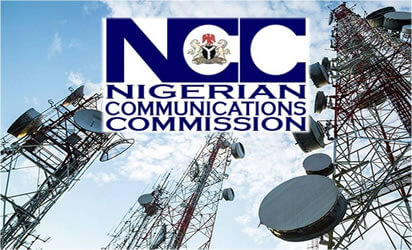Following the publication of notice by the Nigerian Communication Commission (NCC) to have some networks disconnected for inability to settle interconnect and infrastructure debts, key stakeholders in the industry have indicated that this isn’t the best solution to resolve this industry crisis.
Noting that the issue of indebtedness has built over the past 15 years and previous attempts to use disconnection of networks as the solution to this problem has not worked, the President of Association of Telecommunications Companies of Nigeria (ATCON), Mr Olusola Teniola called for the full implementation of an automated settlement scheme for the telecoms industry in Nigeria as the way out of this situation.
Under an automated settlement scheme, which ATCON had endorsed when it was called upon by the NCC to proffer a solution to the rising debt profile in the telecoms space some months ago, all operators would be made to set aside a percentage of the their daily recharge card sales into a settlement account to be used every month to handle their interconnect and facility obligations.
That will ensure that every month, there is an automated payment of all interconnect and facility charges that are due. For operators with legacy debts, they will be made to put aside a higher percentage to deal with the legacy debts until paid off. This way within a period of no more than 12 months, all legacy debts are cleared with no new debts being added.
This represents the sure way to get the industry out of this predicament. This is possible because 98 per cent of the services taken by subscribers are prepaid. The originating network should have the money before the service is used. They have the means to pay using the current and future earnings on the network.
Speaking in similar vein, an industry expert, who would not want to be named, wondered why NCC is using what would be tantamount to bandaging the wound versus actually applying real medication.
He stated that this issue has plagued the industry for too long and going by the past experience, disconnection of networks only ended up reducing the number of service providers in the country, while not guaranteeing that the operators being owed will get their money. These operators are still in business so they have the means to pay if a proper framework to collect the payments is in place. That is what the industry efforts should be centered around.
When contacted, one of the interconnect exchange operators affected by the NCC action wondered why the NCC would list them for disconnection when there is no evidence to show they have been paid by the network operators that passed the traffic. He stated that the interconnect operators don’t collect money from subscribers and it is only when they have been paid by the originating network, that payment would be made to the terminating network.
“In his words, we have explained and presented evidence to the NCC that we have not been paid by the originating networks. We are also being owed our portion of the transit fee. We are being owed hundreds of millions of naira by the telecom operators. All we have been told by the NCC is to also initiate a disconnection process to have operators owing us disconnected also. However, this does not solve our problem since it does not guarantee we will ever be paid,” he said.
Meanwhile, the Nigerian Communications Commission (NCC) has assured the general public that none of the over 160 million telecoms subscribers in Nigeria will be disconnected or suffer service disruptions as a result of its recent order to permit the disconnection of indebted operators from other operators’ networks.
This assurance was given in Abuja late last week by the NCC’s Executive Commissioner for Stakeholder Management Mr Sunday Dare.
Dare clarified that the approval given by the NCC was not for any network to disconnect subscribers as being wrongly presented in some media, but for some creditor networks to restrict services to debtor networks.
He stated that “the NCC is a consumer-centric regulator; the protection of our consumers and the sustainability of the industry are the primary drivers of our activities. So in this case, even before we granted the permission for disconnection, we had put some very stringent safety valves in place to protect consumers and ensure that they continue to enjoy uninterrupted service while we address the very serious issue of indebtedness in the industry.”
Giving a background to the issue of disconnection of networks, Dare stated that “over the years, the industry has been plagued with the very serious problem of interconnect and facility indebtedness. Some operators have racked up huge debts to others and have simply refused to pay. Now, we understand that there are ecosystem issues affecting all operators and we are daily working with all Stakeholders to resolve these issues, but the level of indebtedness in the industry is at an embarrassingly high level, and the whole telecoms industry is at risk of failure if we do not act.”
He stated further, “this kind of problem should ideally not occur in an industry where over 90 per cednt of consumers are pre-paid. We had held several meetings with the parties and given several deadlines for the debtors to pay, to no avail. The Nigerian Communications Act of 2003 contains very strict consumer protection measures which we have continued to uphold, such as the requirement that no operator can disconnect another operator without the written approval of the NCC.
“But it appears that some operators were taking unfair advantage of this provision by racking up millions, sometimes billions of naira in debts to other operators, denying their creditors of funds to expand their networks and putting the industry in peril. Having done everything we could, including holding many meetings with the parties and brokering several payments plans to no avail, NCC has little choice in the matter but to grant the persistent requests of the creditor organisations to disconnect the chronic debtors in accordance with the Nigerian Communications Act and our Disconnection Regulations”, he said.






